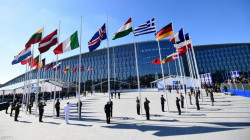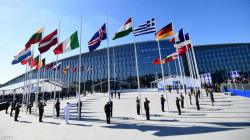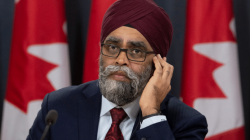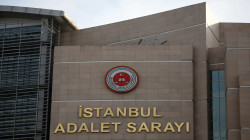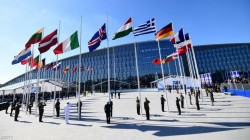Biden to walk diplomatic tightrope at NATO summit, Report
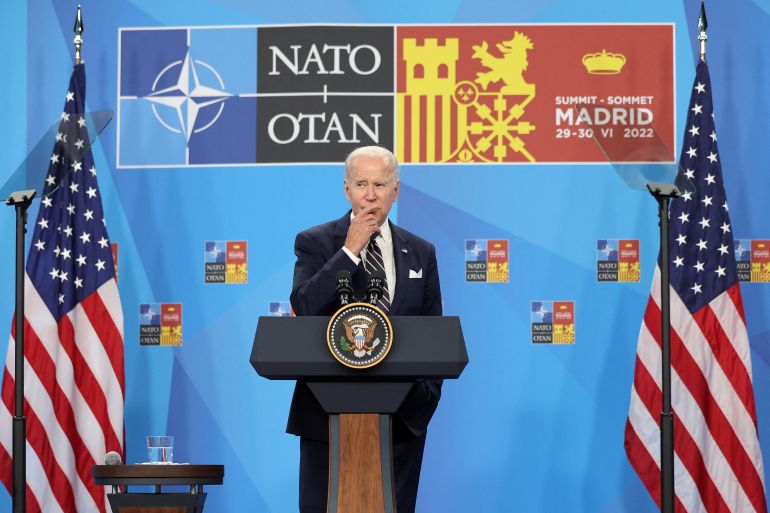
Shafaq News / President Joe Biden’s trip to Europe next week may feel familiar, coming under the shadow of an increasingly stalemated war.
But for administration officials and foreign policy experts, the five-day swing across the Atlantic has quickly taken on heightened import: a bit of high-wire act diplomacy that could profoundly impact international alliances and fundamentally alter the very course of the war itself. The opportunity is there, they argue.
“This is the weakest Putin has been since taking power,” said Ian Bremmer, president of the Eurasia Group, a global risk assessment firm based in New York. “Those escalation concerns that existed when the war began have steadily diminished.”
Biden leaves Sunday for a trip that will have at its heart the NATO summit in Lithuania, a gathering now timed to an inflection point in Russia’s invasion of its neighbor. Held in Vilnius, just a few hundred miles from the fighting, the alliance’s gathering comes as Ukraine has slowly rolled out its counteroffensive. Biden then will visit Finland for a Nordic summit, personally planting the symbolic flag of the West on the soil of NATO’s newest member.
Biden, his aides previewed, will use a major address Wednesday before NATO to forcefully urge for a redoubling of Western support for Ukraine. He will declare it imperative that Kyiv be sufficiently armed to make real progress before the fighting season slows for mud and then snow. He also will point to NATO’s response over the past 16 months, and the alliance’s expansion, to argue that he’s delivered on a promise to repair America’s alliances — and use the recent tumult in Russia as further evidence that efforts by allies have been working.
“The president has been clear that we are going to support Ukraine for as long as it takes and provide them an exceptional quantity of arms and capabilities,” said national security adviser Jake Sullivan on Friday. “We believe we have been able to mount a vigorous concerted, dynamic response in response to Russia’s aggression.”
Alarm has been increasing among many of those allies over how long, and at what cost, Kyiv can continue to be supported. And some of those wary voices have grown louder in Washington, as more congressional Republicans — and leading GOP presidential candidates — have expressed objections to bankrolling the resistance to Vladimir Putin. That, in turn, has stirred fears across Europe that a GOP White House win next year could shatter the alliance. And several points of strain will be evident in Vilnius, including sharp divides as to whether to put Ukraine on a path to NATO membership.
Evidence of Putin’s possible new vulnerability lies just across the border from the NATO summit.
Vilnius sits not far from Lithuania’s border with Belarus, a fellow former Soviet state that has taken a very different path. While Lithuania has linked itself to Europe, Belarus remains a Russian satellite and its leader, Aleksandr Lukashenko, helped broker a deal to end the mercenary Wagner Group’s rebellion attempt two weeks ago.
Lukashenko offered Wagner’s leader, Yevgeny Prigozhin, refuge in the capital of Minsk after the insurrection failed, though his whereabouts remain unknown. But the reasons for the mercenary leader’s aborted mutiny remain present: Prigozhin had myriad complaints about Russia’s faltering invasion, revealing huge cracks in the Russian military’s equipment and strategy that cost thousands of men their lives.
Biden will argue, aides say, that those Russian missteps came because of Ukraine’s fierce resistance, in part fueled by a treasure trove of weapons and money sent by the West. And Bremmer, among others, believes that the failed insurrection gives “a boost to Ukraine’s push to join NATO and gives the West a lot less reason to worry about any of Putin’s supposed red lines.”
But Kyiv’s long-awaited counteroffensive has gotten off to an undeniably sluggish start, with many of Ukraine’s top soldiers exhausted or incapacitated after nearly 18 months of fighting. With those struggles as the backdrop, Ukraine next week will again push for NATO membership, something that is certain to be a flashpoint in Vilnius.
President Volodymyr Zelenskyy is seeking a clear indication from leaders on where they stand on that question, which appears to be splitting two key members of the alliance. French President Emmanuel Macron, struggling to quiet widespread rioting across his nation, canceled a scheduled state visit to Berlin last week. That added to the rising tension between Macron and German Chancellor Olaf Scholz over Ukraine’s potential NATO membership.
During a trilateral meeting in Paris last month, which was also attended by Polish President Andrej Duda, Macron shifted his position on the matter to be more in line with Poland and other eastern flank countries that want Ukraine to eventually join the alliance. That, in turn, alienated Scholz, who is constrained politically by a German public wary about getting entangled further in the conflict.
Biden has also made clear that Kyiv should not get a shortcut to admittance, a stance many allies share, given lingering concerns about its defense capabilities and the need for more democratic reforms. Sullivan said on Friday that Ukraine would not gain admittance in Vilnius.
A resolution over Sweden’s membership appears closer at hand. That country applied for membership at the same time as Finland, but has been blocked by objections from Turkey and, to a lesser degree, Hungary. Earlier this week, Biden forcefully added his voice to a late push to get the deal done in Vilnius.
One matter that was settled ahead of time: Keeping Jens Stoltenberg in place as NATO’s secretary general. Privately, the president urged the former Norwegian prime minister, whose term was due to end in October, to consider another extension, two White House officials said. The push reflected Biden’s desire to maintain the status quo and general cohesion within a complex alliance still facing a war right on its doorstep, the officials said.
“It’s indicative of the broader climate within the alliance and how right now the priority is to hold the line on Ukraine for as long as possible,” said Rachel Rizzo, a fellow with the Atlantic Council’s Europe Center, who expressed doubt that leaders would satisfy Ukraine’s request for clarity about its membership ambitions next week. “NATO must present a cohesive front at this summit. So the easier approach here is just answering the short-term questions; and the bigger questions that require consensus from allies are being kicked down the road a little.”
After Biden leaves Sunday, his first stop will be London for his first visit with King Charles III since the monarch took the throne. That visit will be part ceremonial and part substantive, focusing mostly on climate change. Biden will also meet with U.K. Prime Minister Rishi Sunak before heading to Lithuania.
Biden’s team believes that prioritizing leadership on the world stage will benefit him back home, providing a sharp and effective contrast to the raucous GOP primary field. And Biden’s final stop of the week will implicitly drive that home.
Upon leaving Vilnius, Biden will fly to Helsinki for a Nordic States summit and to welcome Finland into the NATO alliance. He is expected to hold a Thursday news conference in the Finnish capital — five years to the week since his predecessor, Donald Trump, did the same in a very different political moment.
It was in Helsinki that Trump met with Putin in 2018, the two men huddling alone for hours in their sole full-fledged summit. At the news conference afterward, Trump made clear that he believed Putin’s denials about Russia’s 2016 election interference over the conclusions of his own intelligence agencies. And national security analysts believe that, despite his military setbacks, Putin might try to keep his war going through the next U.S. presidential election
“Given that Trump is running again for president and given the growing chorus of Republican candidates who question or are against U.S. support for Ukraine,” said Hagar Chemali, a former National Security Council and Treasury Department official under President Barack Obama, “I would expect President Zelenskyy to push even harder for additional military support this year to avoid getting stuck in U.S. domestic politics as we near November 2024.”
(Politico)
